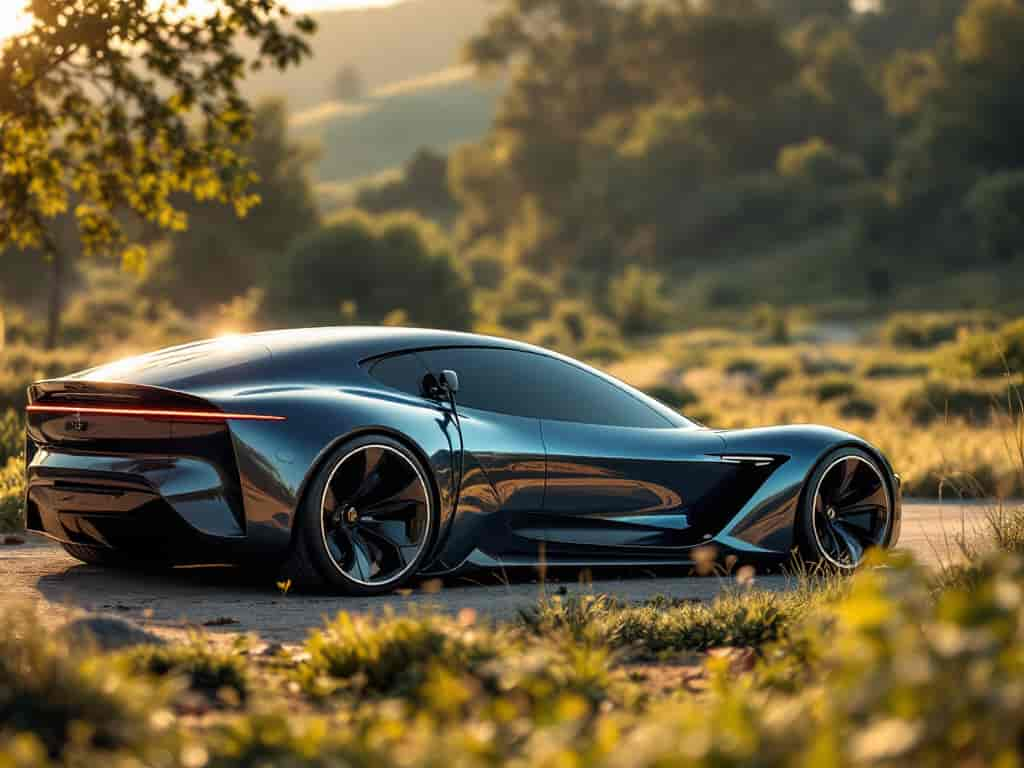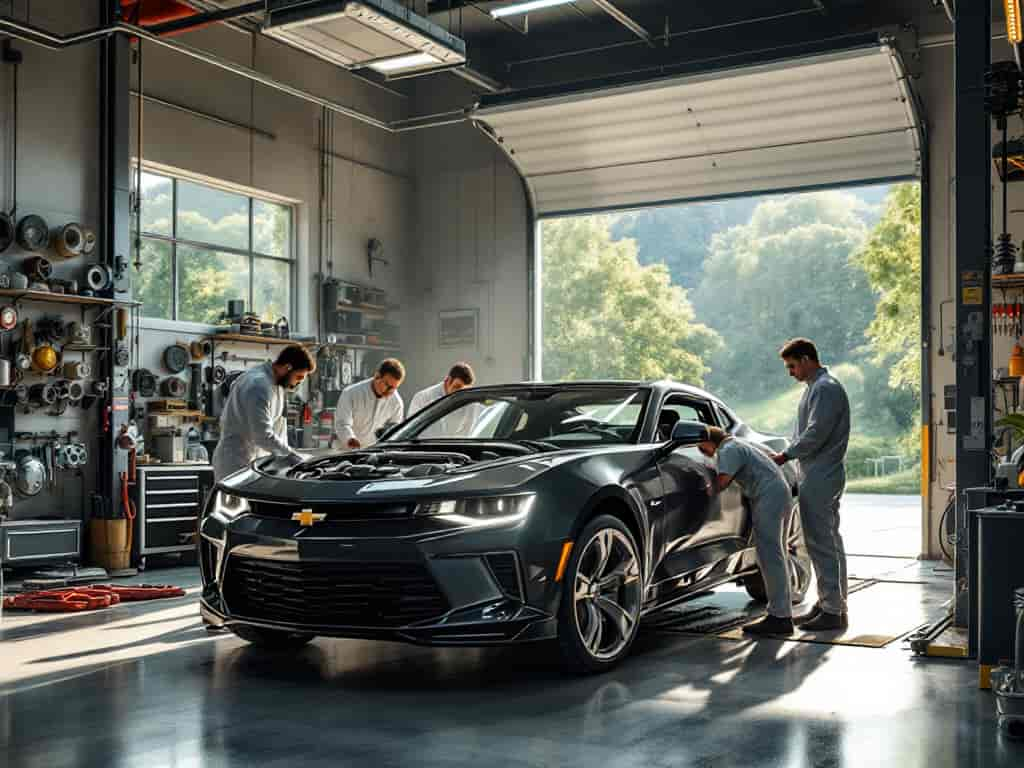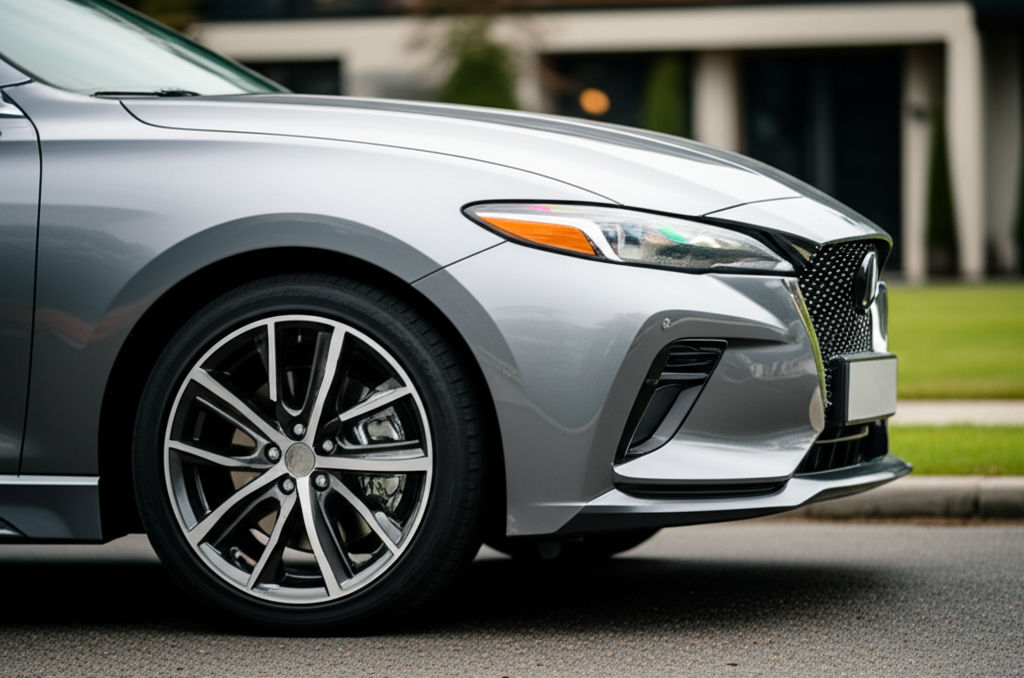Hybrid vs. Electric Cars: Which Should You Buy?
Ellie Moore

Photo: Hybrid vs. Electric Cars: Which Should You Buy?
Hybrid vs. Electric Cars: Which Should You Buy?
As the automotive industry rapidly evolves, the choice between hybrid and electric cars has become a pivotal decision for environmentally conscious consumers and tech enthusiasts alike. Understanding the differences, benefits, and drawbacks of each can guide you toward making an informed choice that aligns with your lifestyle, budget, and environmental values.
Understanding Hybrid Cars
What Are Hybrid Cars?
Hybrid cars combine a traditional internal combustion engine (ICE) with an electric propulsion system. This dual setup allows the vehicle to switch between or simultaneously use both power sources, optimizing fuel efficiency and reducing emissions.
How Do Hybrid Cars Work?
Hybrid vehicles utilize technologies such as regenerative braking and electric motor assistance to enhance performance and efficiency. The battery in a hybrid car is charged through the engine and braking system, eliminating the need for external charging sources.
Types of Hybrid Cars
- Full Hybrids: Capable of running solely on electric power for short distances.
- Mild Hybrids: Use the electric motor to assist the engine but cannot run independently.
- Plug-in Hybrids (PHEVs): Feature larger batteries that can be charged via an external power source, allowing for longer electric-only driving ranges.
Exploring Electric Cars
What Are Electric Cars?
Electric cars (EVs) are powered entirely by electricity stored in rechargeable batteries. They produce zero tailpipe emissions, making them a greener alternative to traditional gasoline-powered vehicles.
How Do Electric Cars Work?
EVs use electric motors powered by lithium-ion batteries. These batteries are charged through home charging stations, public charging networks, or fast chargers, providing varying ranges depending on the vehicle and charging method.
Types of Electric Cars
- Battery Electric Vehicles (BEVs): Fully electric with no internal combustion engine.
- Extended-Range Electric Vehicles (EREVs): Primarily electric but include a small engine to generate electricity when the battery is depleted.
Key Differences Between Hybrid and Electric Cars
Understanding the fundamental differences between hybrid and electric cars is crucial for making the right choice.
Power Source
- Hybrid Cars: Utilize both gasoline and electricity.
- Electric Cars: Rely solely on electricity.
Emissions
- Hybrid Cars: Emit fewer pollutants than traditional cars but still produce some emissions.
- Electric Cars: Zero tailpipe emissions.
Driving Range
- Hybrid Cars: Typically offer a range similar to conventional cars due to the gasoline engine.
- Electric Cars: Range varies by model but is generally improving with advancements in battery technology.
Charging vs. Refueling
- Hybrid Cars: Refuel at gas stations no need for external charging.
- Electric Cars: Require access to charging infrastructure, which may be a consideration depending on your location.
Pros and Cons of Hybrid Cars
Advantages
- Fuel Efficiency: Better mileage compared to conventional vehicles.
- Flexibility: Ability to switch between gasoline and electric power.
- Lower Emissions: Reduced environmental impact.
- No Need for External Charging: Convenient refueling at gas stations.
Disadvantages
- Complexity: More components can lead to higher maintenance costs.
- Battery Replacement: Over time, batteries may need replacement, which can be expensive.
- Limited Electric-Only Range: Not as environmentally friendly as fully electric vehicles.
Pros and Cons of Electric Cars
Advantages
- Zero Emissions: Environmentally friendly with no tailpipe pollutants.
- Lower Operating Costs: Electricity is generally cheaper than gasoline, and EVs have fewer moving parts.
- Quiet and Smooth Operation: Enhanced driving experience with instant torque.
- Incentives: Many governments offer tax credits and rebates for EV purchases.
Disadvantages
- Higher Upfront Cost: EVs can be more expensive than their hybrid counterparts.
- Charging Infrastructure: Availability of charging stations varies by region.
- Range Anxiety: Concerns about battery life and the distance that can be traveled on a single charge.
- Longer Refueling Time: Charging an EV takes longer than refueling a gasoline tank.
Cost Comparison: Hybrid vs. Electric Cars
When considering the financial aspect, it's essential to look beyond the initial purchase price.
Purchase Price
- Hybrid Cars: Generally less expensive than electric cars but more costly than traditional vehicles.
- Electric Cars: Higher upfront cost, though this is often offset by incentives and lower long-term operating costs.
Operating Costs
- Hybrid Cars: Better fuel efficiency leads to lower gas expenses.
- Electric Cars: Significantly lower fuel costs, especially if you have access to home charging.
Maintenance Costs
- Hybrid Cars: More complex systems may result in higher maintenance costs.
- Electric Cars: Fewer moving parts mean lower maintenance expenses.
Total Cost of Ownership
Over the lifespan of the vehicle, electric cars often emerge as more economical due to lower operating and maintenance costs, despite the higher initial investment.
Environmental Impact
Choosing between hybrid and electric cars has significant environmental implications.
Hybrid Cars
- Pros: Reduced fuel consumption and lower emissions compared to conventional vehicles.
- Cons: Still relies on fossil fuels, contributing to pollution and greenhouse gas emissions.
Electric Cars
- Pros: Zero tailpipe emissions, significantly reducing your carbon footprint.
- Cons: Environmental impact depends on the electricity source renewable energy sources enhance the benefits.
Which Is Right for You?
Selecting between a hybrid and an electric car depends on various factors tailored to your personal needs and circumstances.
Consider Your Driving Habits
- Hybrid Cars: Ideal for those who frequently drive long distances and may not have easy access to charging stations.
- Electric Cars: Best suited for individuals with shorter commutes and access to reliable charging infrastructure.
Evaluate Your Budget
- Hybrid Cars: Offer a balance between cost and efficiency, suitable for those looking to save on fuel without a significant upfront investment.
- Electric Cars: Higher initial cost but potential savings in the long run, especially with available incentives.
Assess Environmental Priorities
- Hybrid Cars: A step towards reducing emissions with the flexibility of using gasoline.
- Electric Cars: The most environmentally friendly option with zero emissions.
Charging Infrastructure
- Hybrid Cars: No dependency on charging infrastructure flexibility to refuel anywhere.
- Electric Cars: Requires access to charging stations, which may be a limitation in certain areas.
Actionable Tips for Choosing Your Vehicle
- Assess Your Commute: Calculate your daily mileage to determine which type of vehicle aligns with your driving patterns.
- Research Incentives: Look into government rebates, tax credits, and other incentives that can reduce the cost of purchasing an electric or hybrid car.
- Evaluate Charging Options: If considering an electric car, ensure you have reliable access to charging facilities at home or work.
- Consider Total Ownership Costs: Factor in fuel savings, maintenance costs, and potential resale value when comparing vehicles.
- Test Drive Both Types: Experience the driving dynamics of both hybrid and electric cars to see which suits your preferences.
Real-Life Examples and Case Studies
Case Study 1: Urban Commuter Chooses Electric
Sarah, a 30-year-old graphic designer living in a city with ample charging stations, opted for a battery electric vehicle. She benefits from lower operating costs, enjoys the quiet ride, and takes advantage of government incentives, making her choice both economical and environmentally friendly.
Case Study 2: Long-Distance Driver Prefers Hybrid
John, a 45-year-old sales manager who frequently travels long distances, selected a hybrid car. The flexibility to switch between gasoline and electric power ensures he can complete his trips without worrying about charging infrastructure, providing the reliability he needs.
Frequently Asked Questions (FAQ)
1. Are electric cars more expensive to maintain than hybrid cars?
No, electric cars generally have lower maintenance costs due to fewer moving parts and no need for oil changes. Hybrids, while more efficient than traditional cars, have more complex systems that may require more maintenance.
2. Do electric cars have a sufficient range for everyday use?
Modern electric cars offer a range that suits most daily driving needs. With advancements in battery technology, many models now exceed 200 miles on a single charge, reducing range anxiety for most users.
3. Can I charge an electric car at home?
Yes, electric cars can be charged at home using a standard electrical outlet or a dedicated home charging station for faster charging speeds.
4. How long does it take to charge an electric car?
Charging times vary based on the charger type:
- Level 1 (120V): 8-12 hours.
- Level 2 (240V): 4-6 hours.
- DC Fast Charging: 30 minutes to 1 hour for an 80% charge.
5. Are there enough charging stations available?
Charging infrastructure is expanding rapidly, especially in urban areas and along major highways. However, availability may vary depending on your location.
Conclusion
Choosing between a hybrid and an electric car hinges on your driving habits, budget, environmental priorities, and access to charging infrastructure. Hybrid cars offer a balanced approach with flexibility and improved fuel efficiency, while electric cars provide a greener, cost-effective solution for those ready to embrace the future of transportation. Evaluate your personal needs and consider the long-term benefits to make the best decision for your next vehicle purchase.
Ready to make the switch? Share your thoughts in the comments below, share this article with friends considering their next car, and explore our related content to stay informed on the latest automotive trends!
Finance & Investment
View All
January 2, 2025
Explore the Global Finance DistrictGo beyond keywords! Craft expert SEO content using E-E-A-T to rank higher, engage users, and build authority. Your guide to digital domination.
Ellie Moore

March 18, 2025
How to Get the Lowest New Car Financing RatesExpert SEO content helps you rank higher, build trust, and provide immense value. Learn why E-E-A-T is key for sustainable digital marketing success.
Ellie Moore

January 15, 2025
John Deere Finance for FarmersElevate your SEO with expert content! Build authority, improve rankings, and earn reader trust by providing high-quality, valuable information.
Ellie Moore

November 19, 2025
Mazda Financing Options That Fit YouCreate expert SEO content that ranks high and builds trust. Learn E-E-A-T, understand user intent, and dominate search results with actionable strategies.
Ellie Moore

May 25, 2025
Pennsylvania Housing Finance Agency InfoElevate your content! Discover how to create expert SEO content that ranks, engages, and builds authority. Master user intent, keywords & optimization.
Ellie Moore

May 23, 2025
Mathematical Finance Career PathMaster expert SEO content! Create valuable, authoritative information that satisfies user intent & search engines. Boost online visibility & growth.
Ellie Moore
Insurance
View AllSave on premiums with usage-based auto insurance. Learn how your driving habits shape coverage and costs!
Ellie Moore
Learn how liability insurance shields businesses from financial risks and legal challenges. Secure your company's future today!
Ellie Moore
Discover how parametric insurance uses data to quickly respond to natural disasters and protect assets.
Ellie Moore
Understand how insurers assess risks to calculate premiums. Learn how your profile impacts your policy cost.
Ellie Moore
Learn how blockchain is enhancing transparency and security in modern insurance policies. Is your coverage future-ready?
Ellie Moore
Learn what umbrella insurance covers and who benefits from it. Secure your financial future with added protection.
Ellie Moore
Education
View AllCompare Montessori and traditional education methods. Discover which approach is more effective for fostering creativity and independence in students.
Read MoreExplore how emotional intelligence impacts academic performance. Learn strategies to help students develop emotional skills for better learning outcomes.
Read MoreDifferent cultures approach early education in unique ways. Discover how cultural values shape learning practices for young children around the world.
Read MoreLearn effective classroom strategies to manage ADHD. Discover how teachers can support students with ADHD for better learning outcomes.
Read MoreHelp students develop a love for learning! Discover effective ways to foster a growth mindset in students and promote lifelong success.
Read MoreStrong school-community partnerships can drive student success. Discover the benefits and strategies for effective collaboration.
Read MorePopular Post 🔥
View All
1
2
3
4
5
6
7
8
9
10
Health






Automotive
View All
September 2, 2025
How To Use An Automotive Dent Puller Effectively
Banish car dents like a pro! Our guide shows you how to use automotive dent pullers for DIY repair, saving money & restoring your car's look.

August 21, 2025
C&J Automotive And Tire Of Lansdale Review
Searching for a trustworthy auto shop in Lansdale? This review of C&J Automotive And Tire explores what defines excellent service & how they measure up.

February 14, 2025
How to Convert a Gas Car to Electric: A Guide
Thinking of converting your gas car to electric? Learn the step-by-step process, costs, and benefits of EV conversions. Start your green journey today!

July 12, 2025
Automotive Technician Salary Insights And Facts
Discover the evolving role and salaries of tech-savvy automotive technicians. Get insights into earning potential, from entry-level to experienced pros.

July 25, 2025
Drive Automotive Solutions For Everyday Use
Drive smarter & safer! Get essential automotive solutions, maintenance tips & tech insights to keep your car reliable, efficient, and ready for anything.

February 12, 2025
Hot Wheels Collecting: Hobby or Smart Investment?
Is collecting Hot Wheels just a hobby, or can it be a smart investment? Learn about rare models, values, and tips to grow your collection.

















